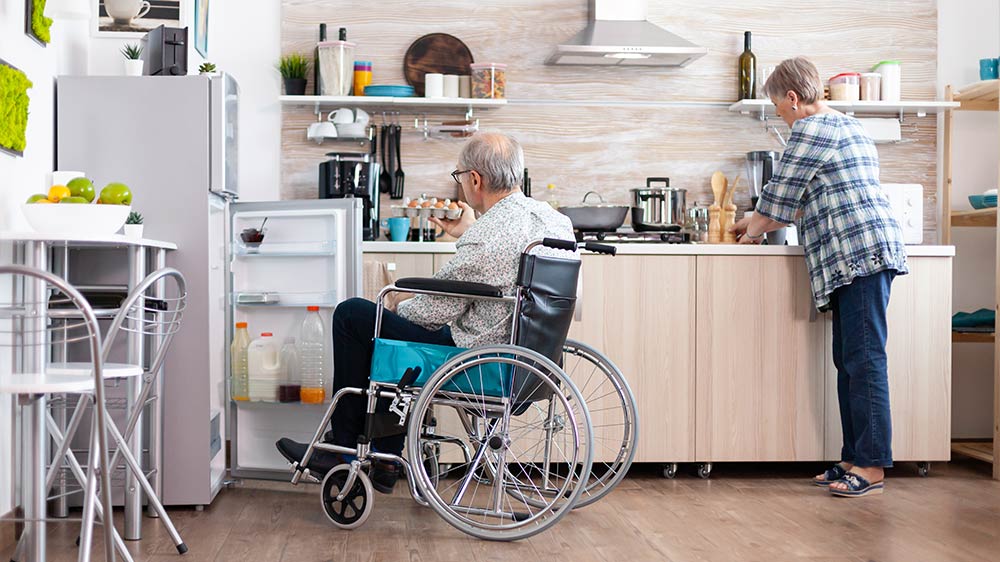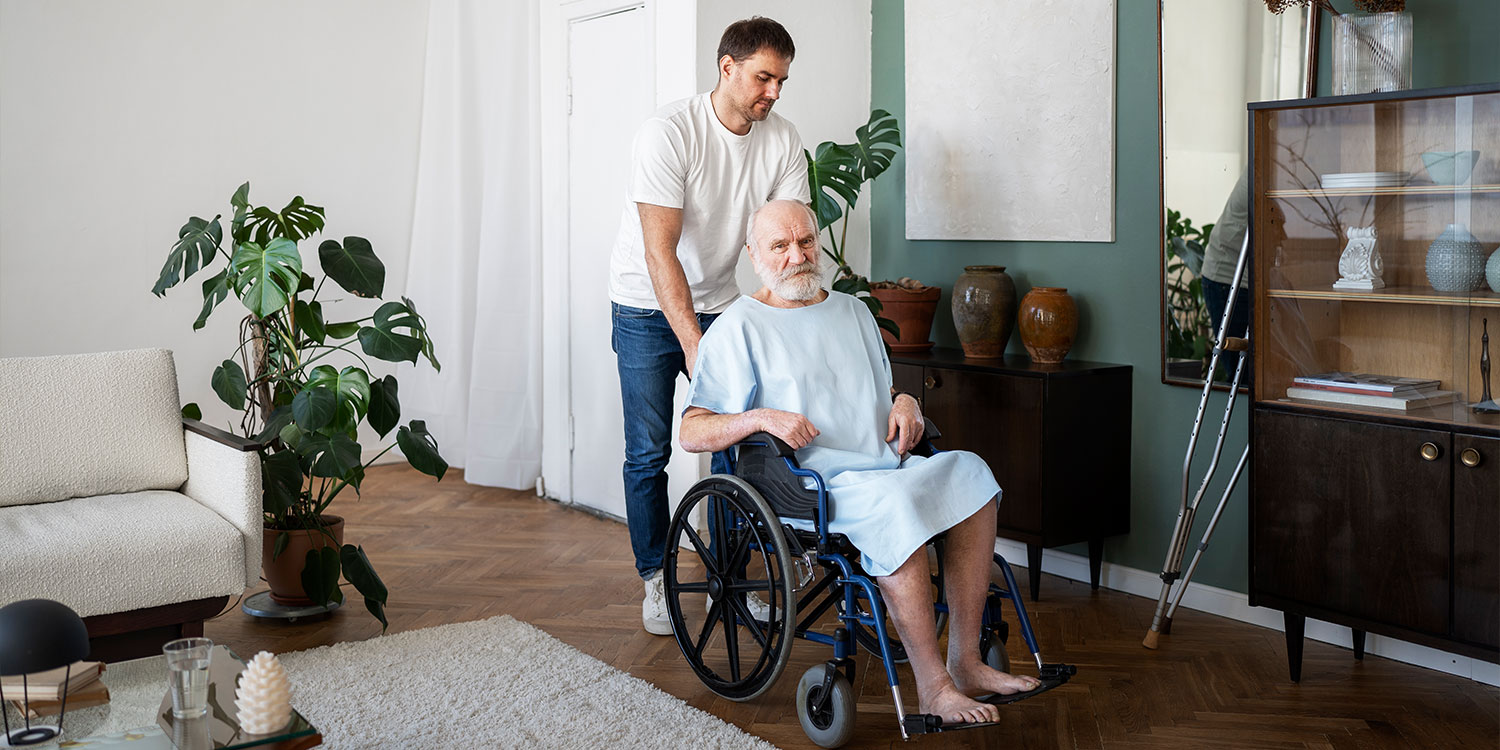As our parents age, their needs evolve. The role reversal from child to caregiver can be challenging, especially when it comes to determining when it’s time to seek professional help. Many of us begin by taking on the responsibility of caring for our parents ourselves, but sometimes, the challenges become too great to handle alone.
One solution that can provide essential support while maintaining your parents’ independence is home care services in Mississauga. These services are designed to help seniors live comfortably in their own homes while receiving the care they need.
But how do you know when it’s time to consider professional help? This article outlines five key signs that indicate your parent could benefit from home care services, offering peace of mind for you and improved quality of life for them.
1. Frequent Health Issues or Hospital Visits
As we age, our health inevitably declines. Many older adults experience chronic conditions such as arthritis, diabetes, heart disease, or cognitive decline. These issues can require ongoing monitoring and care that exceeds what family members can provide on their own.
If your parent has begun to experience more frequent health problems or hospital visits, it could be a sign that they need professional care. Health issues, especially chronic conditions, can become more complicated and require specialized medical attention.
While you may be able to assist in managing some of their care, there are times when a trained caregiver can offer much-needed expertise.
Best Home care services in Mississauga can provide skilled nurses or caregivers who are trained to handle specific medical needs, administer medications, monitor health parameters like blood pressure or glucose levels, and assist with other medical tasks that go beyond basic help.
These services can prevent hospital readmissions, help your parent recover at home, and even monitor the progression of certain conditions.
2. Declining Mobility
One of the most noticeable changes in older adults is a decline in mobility. Whether due to joint pain, weakness, or neurological conditions, seniors may struggle with everyday tasks such as walking, getting out of bed, or standing up from a chair.
Reduced mobility can also lead to increased risk of falls, which are a serious concern for the elderly. Even small obstacles in the home, like an uneven floor or a slippery bathroom, can lead to accidents. If you’ve noticed that your parent is no longer able to move around with ease or expresses fear of falling, this may be a sign that they need assistance.
In such cases, home care services Mississauga can help by providing caregivers who are trained to assist with mobility. These caregivers can help with getting in and out of bed, walking around the house, and even navigating the home safely.
Additionally, they can assist in identifying and mitigating fall risks within the home, such as removing clutter, installing grab bars, or making other modifications to improve safety.
3. Nutritional Decline or Weight Loss
Malnutrition is a significant concern for elderly individuals, especially those living alone. Aging often brings changes in appetite, taste preferences, and the ability to prepare meals. Cognitive decline may make it difficult for your parent to remember when to eat, what to eat, or even how to prepare a meal.
Unfortunately, poor nutrition can lead to a host of health problems, including weakness, depression, and a weakened immune system. If you notice that your parent is losing weight without any obvious reason or they’re skipping meals altogether, it could indicate a larger issue.
Decreased appetite or difficulty eating is common, but it should not be ignored. Often, seniors may not feel motivated to cook or may not have the energy to do so, leading to inadequate nutrition.
Home care services can help by providing caregivers who can assist with meal planning and preparation. Caregivers can ensure that your parent is eating balanced meals that meet their dietary needs. Whether your parent requires soft foods, low-sodium meals, or diabetic-friendly options, home care providers are trained to cater to specialized nutritional needs. This ensures your parent stays healthy and energized.
4. Memory Loss and Cognitive Decline
Forgetfulness is a natural part of aging, but when it begins to interfere with daily life, it’s important to take notice. If your parent is becoming increasingly forgetful, misplacing items, or struggling to remember appointments or tasks they once handled with ease, it may indicate that their cognitive health is declining.
Memory issues are not limited to forgetfulness; they can also affect a person’s ability to handle finances, manage medications, or follow through with important health tasks. This may lead to confusion about routines or an inability to manage household chores and other responsibilities. As cognitive decline progresses, seniors may even experience confusion about time, place, or people.
While some degree of forgetfulness can be attributed to normal aging, significant memory loss can be a sign of conditions like dementia or Alzheimer’s disease. If you’re noticing frequent lapses in memory or confusion, it may be time to seek professional help.
Home care services offer caregivers who are experienced in working with individuals who have cognitive impairments. These caregivers can provide memory support, help with medication management, and ensure that your parent stays engaged in activities that stimulate their mind.
Moreover, caregivers can offer safety supervision, particularly if your parent is prone to wandering or forgetting important safety tasks.
5. Social Isolation and Depression
Seniors often experience social isolation as they age, particularly if they live alone or have limited mobility. Social isolation can lead to depression, which is a serious mental health concern among older adults. If your parent seems withdrawn, disengaged from social activities or expresses feelings of loneliness, it could indicate depression.
While some degree of solitude is normal, long-term isolation can have a detrimental effect on mental and emotional health. Depression can also contribute to a decrease in physical health, making it even more difficult for seniors to perform daily tasks or maintain their independence.
If your parent’s emotional well-being is deteriorating, home care services can help by providing more than just physical support. Caregivers offer companionship, engaging in meaningful conversations, and encouraging your parent to participate in social activities.
They can also accompany your parent to outings, religious services, or even doctor appointments, providing a vital connection to the outside world.
Conclusion
Caring for aging parents is a profound responsibility, and it can be difficult to know when to seek outside help. Recognizing the signs that your parent may need additional support is the first step in ensuring they continue to live with dignity and comfort.
Whether it’s increasing health problems, a decline in mobility, nutritional concerns, memory loss, or emotional isolation, home care services can assist when necessary to meet your parent’s needs.
By choosing professional care, you can rest assured that your parent will receive the specialized attention and support they deserve while continuing to live in the comfort and familiarity of their own home. Home care services offer not only physical care but emotional and social support as well, giving both you and your parents peace of mind during this important phase of life.
If you’re noticing any of the signs outlined above, it may be time to explore home care services. With the right support, you can help your parents live their later years in comfort, health, and happiness. Divinity Home Healthcare provides expert home care services for parents in Mississauga, ensuring their comfort and well-being. Our compassionate team offers personalized support to help them thrive at home.















